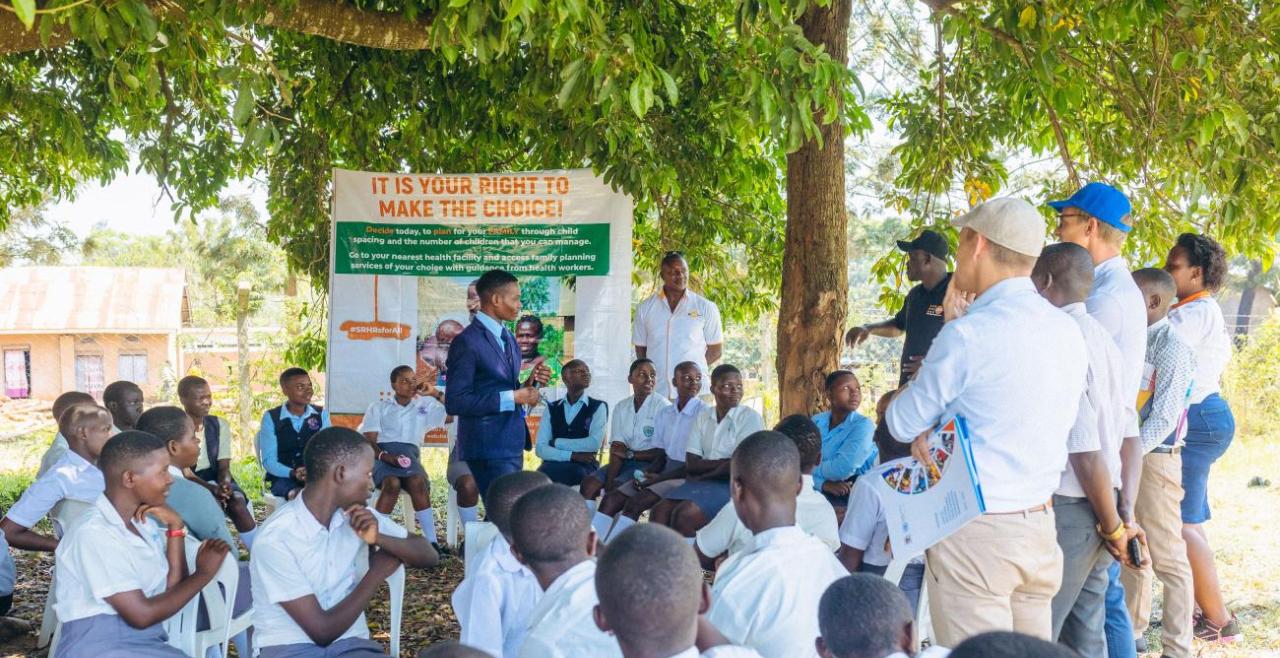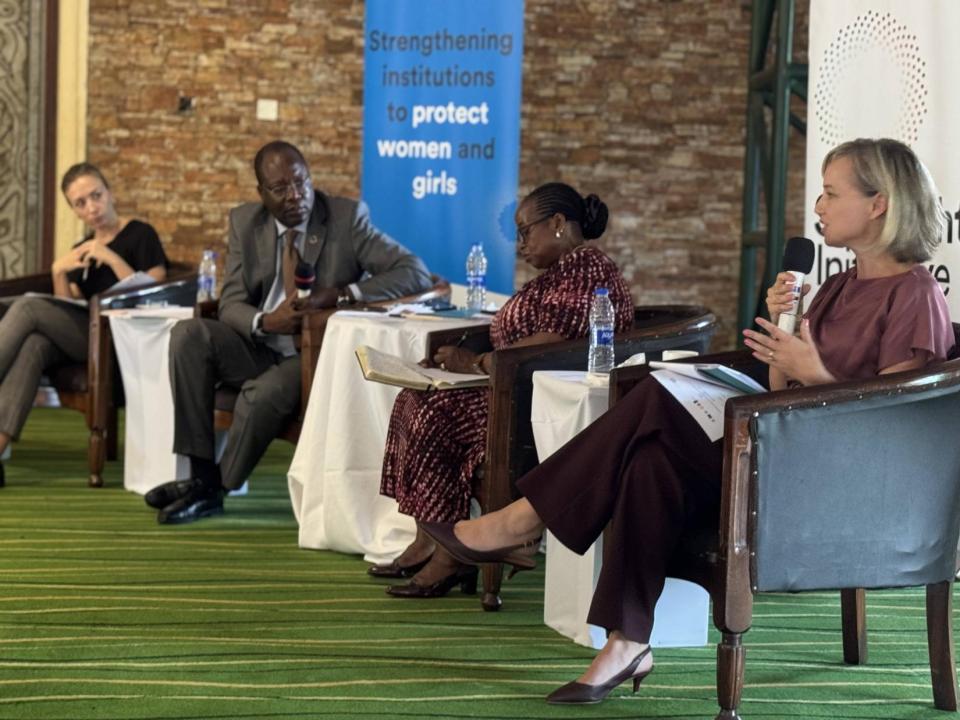Spotlight Initiative in Uganda surpasses 2024 targets, amplifying hope for women and girls

In a year shadowed by dwindling global development assistance, the second phase of Spotlight Initiative in Uganda has defied the odds – surpassing its 2024 targets and lighting a path of hope for thousands of adolescent girls and young women across 17 districts.
The achievements, celebrated during the third Oversight Committee meeting held on 17 June 2025 at the Golf Course Hotel in Kampala, reflect a reinvigorated commitment to ending violence against women and girls, child marriage and harmful traditional practices like female genital mutilation.
"This progress is proof that when we work together – government, communities and partners – we can rewrite the story for Uganda’s girls." - UN Resident Coordinator, Leonard Zulu
Speaking to a room filled with government officials, development partners, civil society actors, and UN agencies, the UN Resident Coordinator, Leonard Zulu, acknowledged the programme’s transformative reach, despite a challenging operating environment.
“When I reviewed the results from 2024, I was struck by how far we’ve come – not just in numbers, but in the lives, we’ve changed,” Mr. Zulu said. “This progress is proof that when we work together –government, communities and partners – we can rewrite the story for Uganda’s girls.”
Speaking on behalf of the Permanent Secretary, Angela Nakafeero, Commissioner for Gender and Women Affairs at the Ministry of Gender, Labour and Social Development, expressed appreciation to stakeholders for their shared commitment to advancing gender equality and protecting human rights.
“We continue working closely with government institutions, cultural leaders, development partners, and civil society to tackle the root causes of gender-based violence and empower communities to create lasting change,” she added.
Breaking barriers, building futures
Originally aiming to provide technical and vocational skills to 683 adolescent girls and young women aged 10-24, the programme reached an astounding 1,078. These young women, once at risk of early marriage or school dropout, are now being equipped with tools for independence and empowerment. While 26,494 in- and out-of-school beneficiaries aged 10-24 were targeted, actions to change social norms, attitudes and behaviours towards the uptake of sexual and reproductive health and rights (SRHR) services reached 77,599 young women and men in 2024.
In parallel, the programme surpassed its outreach targets for advocacy actors, training a formidable 4,833 community leaders – ranging from para-social workers and religious leaders to parents and school administrators – to champion violence prevention and promote SRHR. Overall in 2024, the programme reached 443,033 individuals (242,477 direct: 200,556 indirect) with various services related to Gender Based Violence (GBV), Violence Against Children (VAC) and SRHR.
The ripple effects are already visible in schools, homes, and communities.
Take, for instance, the schools where drama, music, and dance have become more than co-curricular activities – they are vehicles for social transformation. A creative collaboration with the Ministry of Education and Sports brought social behaviour change campaigns to life through student performances, resonating deeply with peers and parents alike.
The Initiative didn’t just meet its 20 per cent target – it reached 98 per cent of eligible girls in project districts.
And when it came to life-skills training for girls aged 10-19, the initiative didn’t just meet its 20 per cent target – it reached 98 per cent of eligible girls in project districts. This surge in participation signals a growing recognition by families and communities of the importance of nurturing empowered, resilient daughters.
"We deeply appreciate the strong collaboration among all partners and urge continued joint efforts. To truly make a difference, we must remain focused on impact, not just outputs, and ensure accountability at every level – especially through meaningful engagement with civil society," said Karolina Andrzejewska, Governance and Social Inclusion Team Leader, EU Delegation in Uganda.
UN delivering as one
Behind these achievements is a strong coalition of UN agencies – UNDP, UNICEF, UNHCR, UNFPA, and UN Women – working in sync under the “Delivering as One” approach. Their ability to pool and coordinate resources and outreach was key to overdelivering on results.
"It’s inspiring to see five UN agencies working together in such a coordinated and impactful way." - Elin Hilwig, Embassy of the Kingdom of the Netherlands in Uganda
"It’s inspiring to see five UN agencies working together in such a coordinated and impactful way. Our recent field visit gave us a good impression of the tangible results being achieved, and we look forward to tracking progress even more closely," said Elin Hilwig, First Secretary for Sexual and Reproductive Health and Rights, Embassy of the Kingdom of the Netherlands in Uganda.
Guided by the UN Resident Coordinator’s Office and backed by committed development partners – the European Union and the Royal Netherlands Embassy, the programme exemplifies strategic collaboration at its best.
Government leadership anchors progress
None of the success, however, would be possible without the steadfast leadership of the Government of Uganda. The Ministry of Gender, Labour and Social Development, has played a pivotal role in driving the programme’s design and execution. Their hands-on involvement has ensured that policies meet the realities on the ground – and that girls in even the most underserved districts are not left behind.
As Mr. Zulu concluded, “We must never lose sight of the human faces behind every statistic. Each girl reached is a story of potential unlocked, a life redirected. And that is the true spotlight we must keep shining.”
By Monicah Aturinda. First published on UN Uganda.

